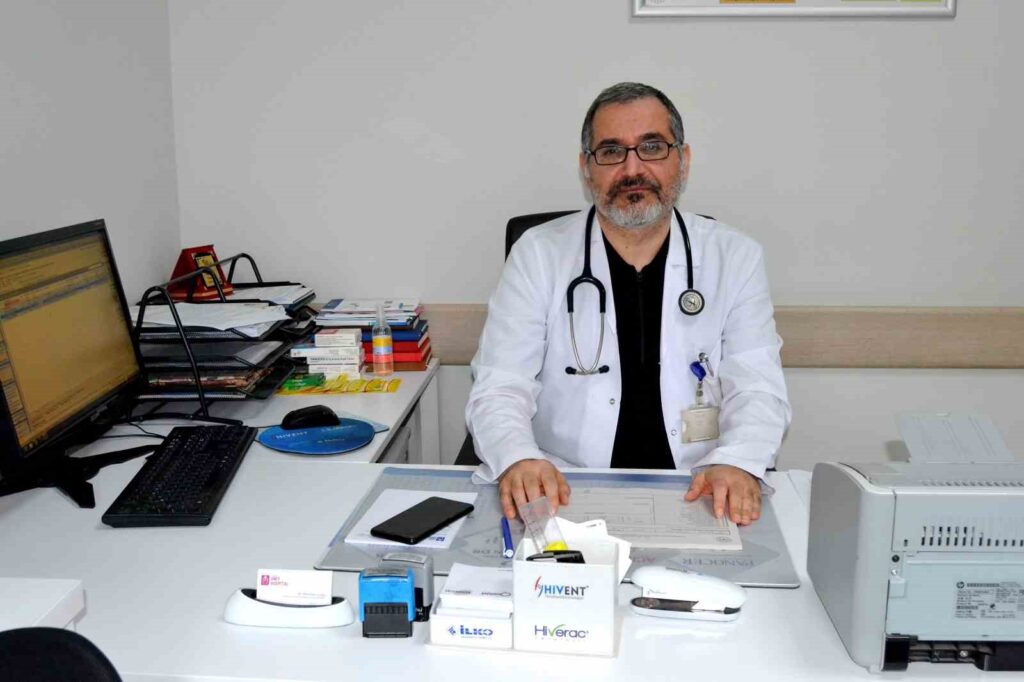Pay attention to bleeding and spotting in the first 3 months of pregnancy
Acıbadem Kayseri Hospital’s Obstetrics and Gynecology, IVF and Reproductive Health Specialist Assoc. Prof. Dr. Cevat Rıfat Cündübey stated that one of the common problems encountered during the first 3 months of pregnancy is bleeding and spotting, ‘Because …

Acıbadem Kayseri Hospital Specialist in Obstetrics and Gynecology, IVF, and Reproductive Health Assoc. Prof. Dr. Cevat Rıfat Cündübey stated that one of the common problems encountered during the first 3 months of pregnancy is bleeding and spotting, saying, ‘We consider this condition as a threat of miscarriage. However, our patients should not panic in such situations.’ Assoc. Prof. Dr. Cevat Rıfat Cündübey provided information about the IVF process, stating, ‘All pregnancies are precious. However, IVF treatment is a challenging and laborious process, and if a pregnancy occurs after the treatment, the value of this pregnancy is even higher for both the family and the physician following this process. Our follow-ups start approximately 10-12 days after embryo transfer with the Beta HCG test. If the Beta HCG test is positive, we monitor whether the blood values are regularly increasing with tests we conduct every other day. Then, we call for an ultrasound check to see the sac. Afterwards, we hope to hear the heartbeat.’ Assoc. Prof. Dr. Cündübey emphasized that one of the most important problems during the first 3 months of pregnancy is bleeding and spotting, stating, ‘In our follow-ups after hearing the heartbeat, the first 3 months are even more crucial for us. IVF pregnancies differ from natural pregnancies in terms of both preparing the uterine wall for embryo transfer and the medications used during this period. We inform our patients about how long the drugs we give after the transfer should be used, how often they should be used, or when to stop using them. One of the common problems we encounter in all pregnancies during the first 3 months is bleeding and spotting issues. This is also one of the problems we encounter in IVF patients. Bleeding and spotting are issues that need to be taken seriously. Because we consider this condition as a threat of miscarriage. However, our patients should not panic in such situations. We advise our patients undergoing treatment to contact the physician when they experience bleeding and spotting, adjust the medication plans based on the intensity of bleeding, and regulate the medication doses. If we have started anticoagulant therapy at the beginning of the pregnancy, we sometimes pause it, sometimes adjust the doses. However, bleeding and spotting are among the symptoms that need to be closely monitored.’
Assoc. Prof. Dr. Cündübey highlighted that they do not recommend continuous bed rest. He mentioned that they receive questions regarding rest and nutrition during pregnancy and emphasized that they do not constantly recommend bed rest to pregnant women. He said, ‘One of the problems we encounter during the first 3 months of pregnancy is nausea. We encounter it in all pregnant women. It is also one of the common problems in IVF pregnancies. Of course, we believe that the drugs that can be used, nutrition, and dietary supplements during this period will support the reduction of complaints. We provide specific dietary recommendations for IVF patients, but there is no difference in terms of pregnancy and post-pregnancy compared to other pregnant women. We recommend healthy eating, consuming plenty of fluids, and ensuring that meat products are well-cooked and clean. One of the most frequently asked questions by patients who have become pregnant after IVF is about rest. We do not recommend continuous bed rest in all pregnancies, nor is it recommended in pregnancies resulting from IVF treatment. Pregnancy already predisposes to clot formation. We know that long-term bed rest can create a riskier situation. We only recommend it for patients at low risk of miscarriage or preterm birth. IVF patients are known as ‘precious pregnancies’ in society. Of course, like all pregnancies, these pregnancies are also very valuable. Patients who conceive through IVF sometimes feel closer to a cesarean delivery. However, if the patient becomes pregnant through IVF, we always recommend the most suitable delivery method for the patient, mother, and baby. So, patients who become pregnant through IVF can also have a normal delivery. If the baby’s position is appropriate, and the mother’s condition is suitable, there is no problem with a normal delivery.







